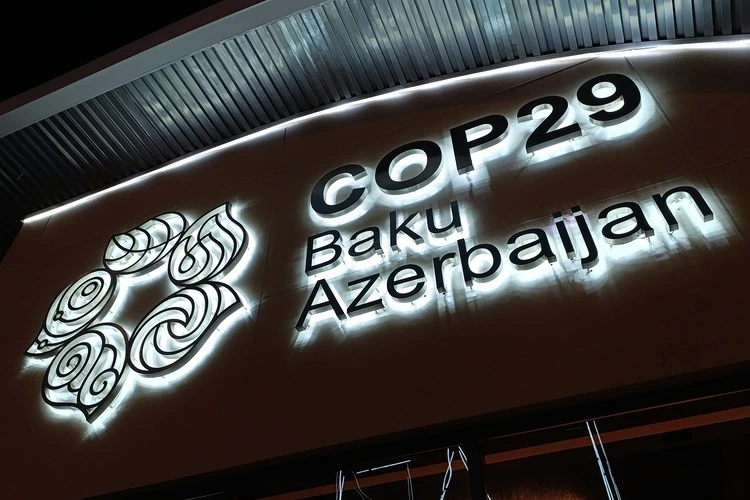
Geographical‘s climate columnist Marco Magrini dissects COP29 – but explains the real ‘acid test’ for nations will be next year’s conference


The Caspian Sea, the biggest lake in the world, is set to see its water levels fall dramatically because of climate warming-induced evaporation (and because of Russian agriculture diverting water from the Volga River), thus leaving bordering Azerbaijan with a dire economic and ecological threat.
Saudi Arabia is projected to experience a 3ºC temperature increase by mid-century, which, in case of high humidity, could make ’wet bulb’ temperatures above 35C, thus threatening human survival. In the so-called ‘developed world,’ largely responsible for the climate crisis because of its historical emissions, re-insurance companies estimate that extreme weather-related damages are set to skyrocket to the point of making property insurance impossible.
Nevertheless, at COP29, the UN climate change conference that ended last Sunday in overtime, the Azerbaijani presidency pretended to conceal its economic dependence to oil & gas while steering for a modest outcome; the Saudi delegation successfully managed to never mention the need of ‘transitioning away from fossil fuels’ in the final documents; and industrialised nations, certainly bewildered by the uncertainties of the ongoing wars and the upcoming Trump presidency, failed again to take their responsibility for the climate crisis, as promised in (a distant) past.
There is a clear disconnect between what the planet needs and what nations are willing to do – depending on their resources endowment, on their economic status, on their political system and on their geographical position. Multilateralism intended to be a partial solution to such a world of disparities. Yet multilateralism, a principle at the very core of the UN and thus of any climate COPs, is probably at its lowest point ever.

If we add the dismissal of multilateralism to the resurgence of nationalism and to a basic denial of the reality of climate change, we understandably get to COP29’s decision to postpone decisions.
Sure, the glass is not even half full, but it’s not empty. At the 11th hour, the conference frantically managed to dodge the risk of a total collapse by approving a few steps
building on the Paris Agreement, with the prospect of ’building on’ them in the future.
‘Cop29 in Baku came very close to failure and it has ended with a disappointing deal,’ said former UN envoy on climate Mary Robinson. ‘But it is a deal the world can build on in 2025.’
Enjoying this article? Check out our related reads:
UN Secretary-General António Guterres lamented that he had hoped for a more ambitious result, but ‘this agreement provides a base on which to build.’ In a nutshell, developed nations pledged to ‘mobilise’ $300 billion annually by 2035 – ‘a paltry sum,’ said an Indian minister – to assist developing countries in mitigating and adapting to climate change, with the distant dream of reaching up to $1.3 trillion by the same year.
The assembly also agreed on rules to establish a UN-administered global carbon market under Article 6.4 of the Paris Agreement. This framework is intended to
facilitate international trading of carbon credits, which have been marred by a few scams and limited adoption worldwide. Up until now, the Global North contributions to the Global South have hardly reached $100 billion, and an update of Article 6 was expected after COP21 in Paris, so, yes, one can say this was a step forward.

Rob Crandall/Shutterstock
The acid test though, will come next year at COP30 when countries are expected to update and raise their NDCs, or ‘nationally determined contributions’ to cutting
greenhouse gas emissions on a voluntary basis. Most likely, under the Trump administration, the US will not file any.
At that point, it will be clear how much nations are willing to save the planet, apart from congratulating themselves for their clean energy adoptions propelled by technological and industrial advances.
After being hosted in Dubai and Azerbaijan, the 2025 multilateral conference will convene in Belém, Brazil. The country may not technically be yet another Petrostate host, but oil is still its second export after soybeans. Belém lies in the heart of the Amazon, once a glorious carbon sink, now on the brink of collapse after decades of ruthless deforestation.
Its rainforest is so precious to the already precarious stability of the one-and-only atmosphere that it simply can’t be lost. Neither can we lose the Caspian Sea, or the Arabian Peninsula’ s liveability.
On multilateralism we must trust.





